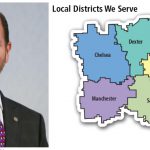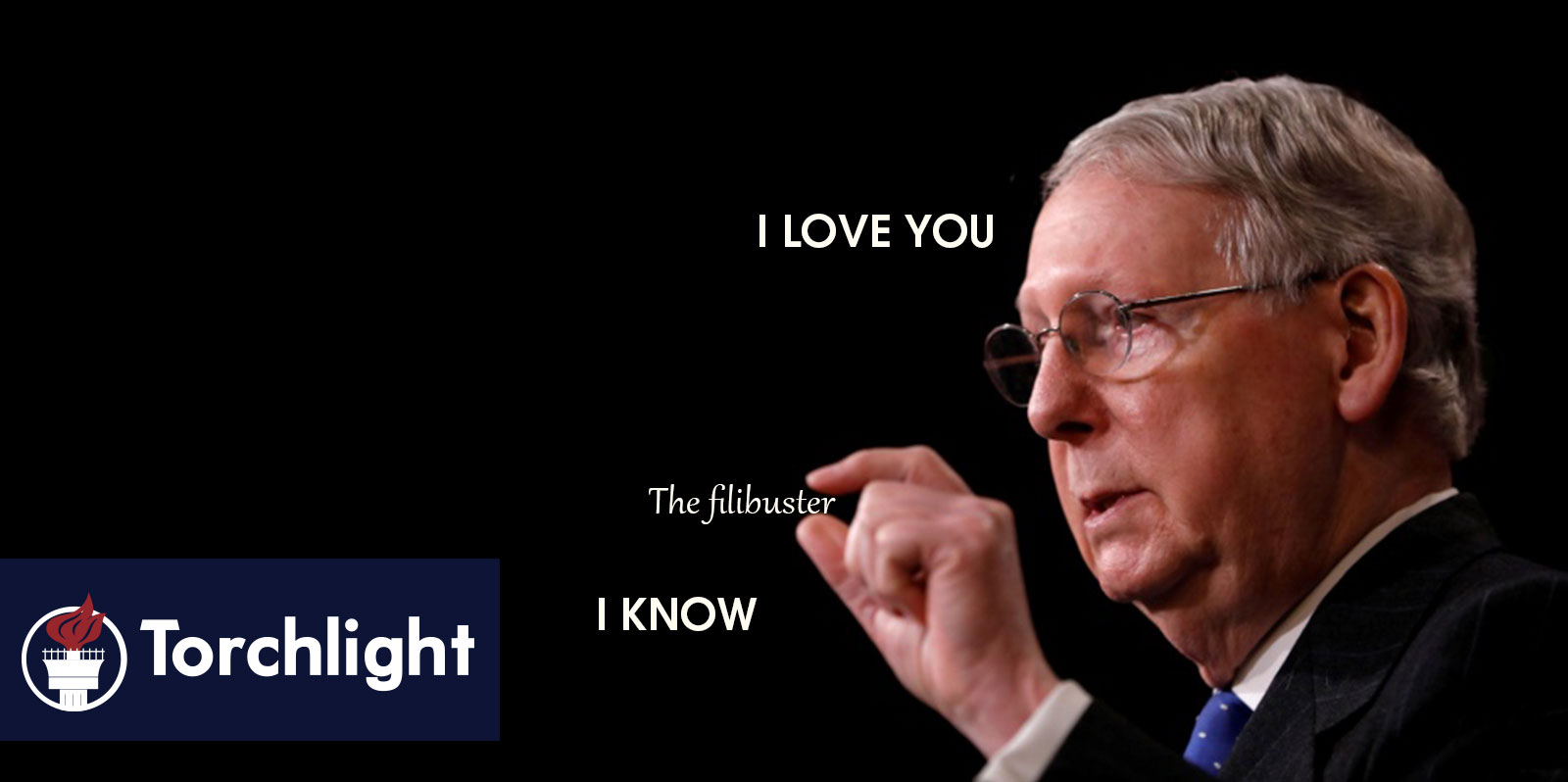Even though the focus of a lot of political reform proposals are the results of the election three years ago, our democratic institutions have been under threat for a long time. Each branch of our government has been under pressure, from Mitch McConnell’s undermining of the Supreme Court, to Congress’s accelerating use of the filibuster, to campaign finance changes in the wake of the Citizens United decision. But political reform is not just about abstract notions of fair play; these inefficiencies, unintended veto points, and political distortions are also what stands in the way of all other reforms, from health care to climate to the economy. In a very real way, a candidate’s approach to political reform demonstrates how they intend to use the complicated levers of government to achieve their stated ends. Here we examine the policies the Democratic presidential primary candidates have proposed thus far.
The most important political barrier to accomplishing anything is the filibuster. The modern filibuster, created almost by accident in 1806 by Vice President Aaron Burr, has slowly metastasized since a sharp increase in the 70s until today, when the convention of its use requires 60 votes in the Senate to accomplish anything. Because of the way the Senate map is laid out electorally, these seats would include Kentucky, Tennessee, and the Carolinas; it would be almost impossible for the Democrats to win 60 seats. Simply put, if the filibuster remains in place, the next president will not be able to pass any significant legislation at all.
It’s difficult not to see a candidate’s approach to the filibuster as indicative of their level of intention to actually get things done. Former Vice President Biden, for example, seems to be reluctant to endorse any filibuster reform, a stance which would significantly weaken his ability to pass his proposed legislation. Biden campaigns on his ability to bridge consensus between parties, seemingly ignoring the Republican party’s consistent bad faith obstructionism. In contrast, Senator Elizabeth Warren is the most unequivocally in favor of getting rid of the filibuster. Warren acknowledges that in order to get any legislation passed at all, even if Democrats take the Senate majority in 2020, they cannot be stymied by the minority, as they were for the greater part of Obama’s term (even their period of supermajority was oh so brief). Senator Sanders claims that he will be the head of a political revolution, which presumably will somehow achieve 60 votes in the Senate for Bernie’s proposals, either through a dramatic electoral victory or via post-election public pressure on Republicans. Sanders also plans to use the budget reconciliation process, which allows legislation to pass on only a simple majority. Reconciliation is not without limitations, however; it can only be used once per year, and only on items related to the budget (Sanders claims the Vice President has the power to broaden the latter rule). Senator Cory Booker is much less unequivocal, and is open to reforming or eliminating the filibuster, but is not enthusiastically supporting it yet. Senator Klobuchar has expressed regret for removing the filibuster for judicial nominees, but at the time the judicial nominee in question was particularly unsuited, and achieved approval on 51 votes. She is open to using filibuster reform as leverage, but also wants to keep the legislative check on the president. However, it looks likely (but not assured!) that Democrats will retain the House in 2020, so there is less reason to be concerned about Republican legislation being passed. Mayor Pete Buttigieg is also open to the idea of eliminating the filibuster, although it has not transformed into full throated support yet. However, recently the Mayor recast himself as a more moderate candidate, so it is difficult to tell whether previous policy stances are still reflective of his priorities. Julian Castro supports eliminating the filibuster, especially to get actual gun legislation passed. Andrew Yang is also open to the elimination of the filibuster, although as a non-politician, Yang sees it as much more of a Senate-specific issue than a broader problem. Tom Steyer also endorses the removal of the filibuster rule.
It should be noted that there is another candidate for 2020 who supports eliminating the filibuster, and that is President Donald Trump. He spoke (and tweeted) often about it. He thought that it would get his legislation (specifically, tax cuts and the wall) through easier. Of course, now that Democrats have the House, that isn’t true, but no one ever accused Trump of understanding the nuances of legislative strategic thinking. Further, as the likelihood that the Senate is competitive has increased (and indeed the Democrats may win a majority), the president has quieted on the subject.
The Judicial branch of the government also needs reform. The way the country chooses its federal judges is incredibly important, and the process for every single judge, from the Federal Circuit all the way up to the Supreme Court, has been corrupted. While Democrats can do nothing about the Republicans simply confirming over 150 Federalist Society suggestions into the judiciary regardless of actual qualification (including those who cry when told their records are not held in high regard), the other vital component of the branch, the Supreme Court, may be able to be reformed by the next administration. Donald Trump has confirmed two nominees to the Supreme Court, and while their process of nomination was awful (arguably undermining SCOTUS as an institution), it is their rulings in the coming decades that will have the most significant impact.
Several candidates, including Senator Warren, are not opposed to the idea of expanding the Supreme Court, especially after Gorsuch took a seat that was illegitimately kept vacant by Senate Majority Leader Mitch McConnell, who refused to even consider President Obama’s nominee, Merrick Garland. Warren floated a suggestion of using a larger pool of appellate judges as the Supreme Court, while Mayor Buttigieg suggested he supported an arcane form of outright expansion. A President Buttigieg would try to increase the Supreme Court to 15, with 5 chosen by the other 10. There are Constitutional issues with the plan, and it seems like there is a large chance significant progress wouldn’t be made as this plan would tend to fundamentally moderate the Court. Senator Booker, on the other hand, cautioned that Republicans might turn the table on Democrats and expand the court even further, spurring a cycle with no easy end. Senator Sanders has suggested rotating appellate judges through the Supreme Court. Yang supports term limits of 18 years for members of the Supreme Court, which some of the other candidates are open to, but do not necessarily outright support.
Part of the reason the United States has become such a polarized political environment is that the electoral college gives more power to some voters than others, meaning that a minority of voters can win the presidential election. Andrew Yang suggests a reform to the electoral college to apportion votes out proportionally, instead of in a winner takes all format. Others, such as Buttigieg, Sanders, and Warren, call for the elimination of the electoral college altogether. While a constitutional amendment is obviously difficult and unlikely at this time, some also support the National Popular Vote Interstate Compact, which is an agreement by (so far) 15 states (and D.C.) to apportion their electoral votes to the national popular vote winner, if the states in the compact collectively make up at least 270 electoral votes. Buttigieg also seems to think this is a good idea. While other candidates haven’t commented on the compact directly, it is true that it would effectively neuter the problems the electoral college engenders without the heavy lift of a constitutional amendment–assuming it surmounts the inevitable opposing legal challenges. The other major electoral reform in consideration is statehood for the District of Columbia and Puerto Rico. Due to purely political calculations (both states would almost undoubtedly vote for the Democratic Party, adding four Democratic Senators out of, at that point, 104, as well as additional House Representatives), approving either statehood would be basically impossible without the presidency and a legislating majority in Congress. Every 2020 Democratic presidential candidate has endorsed statehood for D.C. (many of them have cosponsored relevant bills), and candidates mostly endorse self-determination, if not statehood outright, for Puerto Rico.
The world of campaign finance is incredibly complicated, and since the SCOTUS’ disastrous decision on Citizens United Not Timid (it’s important to remember what that organization was fundamentally for: grossly attacking Hillary Clinton), the floodgates to PACs and SuperPACs have turned the election process into even more of an anti-democratic funding nightmare than it already was. However, while the decision has had more effect on down-ballot races, the way modern elections are funded, especially for Democrats, is now increasingly complex and arcane. It must be said that election campaigns, especially presidential campaigns, are expensive, and finding funding for the campaigns is one of the most draining parts of the job, no matter where you are on the ballot. Since they are a nationwide effort, presidential campaigns have their own difficulties finding that money–particularly during this cycle, when standing out in the large field of candidates requires qualifying for debates by garnering specific numbers of unique donors. Money, particularly for the multiple billionaires jumping late into the race, can be crucial–but the candidate’s attitude toward fundraising can also signal their priorities.
To start with, from whom candidates take money (or more specifically, do not take money) matters. If a candidate is getting campaign funding from somewhere, it has the consequence of making that voice louder, so that taking money from, say, an energy company, means that they might be more susceptible to anti-climate change arguments, or pro-fracking lobbying. This year, every single candidate has sworn to forgo corporate PACs. Most are also refusing money from fossil fuel companies (this means from the corporate or leadership in those companies; individual employees can still donate to whoever they want). Perhaps as a result, some campaigns are leaning heavily on fundraisers (dinners, Q&A sessions, and so on) with wealthy donors. They can be small or large, expensive or inexpensive (Bernie likes to have his minimum ticket price be the average donation for his 2016 campaign: $27). There is only one candidate who has sworn off these fundraisers completely, in both the primary and the general: Elizabeth Warren. It must be noted that Warren began her presidential campaign by transferring money from her Senate campaign, some of which was raised from fundraisers, but since then and going forward she has promised to eschew them.
But what if we want more assurance on how candidates fund their campaigns, including on the other side of the aisle? Changing how we finance elections for the better will require legislation. Biden has been calling for public financing since 1973. He, along with many others, including Booker, Castro, Buttigieg, Warren, and most other potential nominees support an amendment nullifying Citizens United. Buttigieg also called for legislation that would strike down Buckley v Valeo, a 1976 Supreme Court case which removed limits on the aggregate amount a person could donate to disparate campaigns. Gillibrand and Yang propose a system similar to Seattle’s “democracy vouchers”, which allocate money for people to donate to campaigns, as long as those campaigns do not take large donations. Warren wants to eliminate SuperPacs, and prevent contributions by PACs and federal lobbyists. Some candidates, especially those to the left, such as Senators Sanders, Booker and Warren, see the entire campaign financing system as corrupt, and that individuals with near infinite amounts of money being able to donate with impunity is ultimately a massively distortionary and anti-populist system for politics. Achieving progressive policy objectives is antithetical to that, and so it must be eliminated, or at least reformed.
Our democracy is under threat, but our 2020 Democratic candidates have ideas to shore up institutions, norms, and regulations that will help make our democracy healthier and stronger. These candidates may have different notions on how to strengthen our foundations, but they all realize that something needs to be done, from money, to voting, to the very act of legislating. The cost of inaction may very well be that the changes we need to make in our society will never be truly realized.


